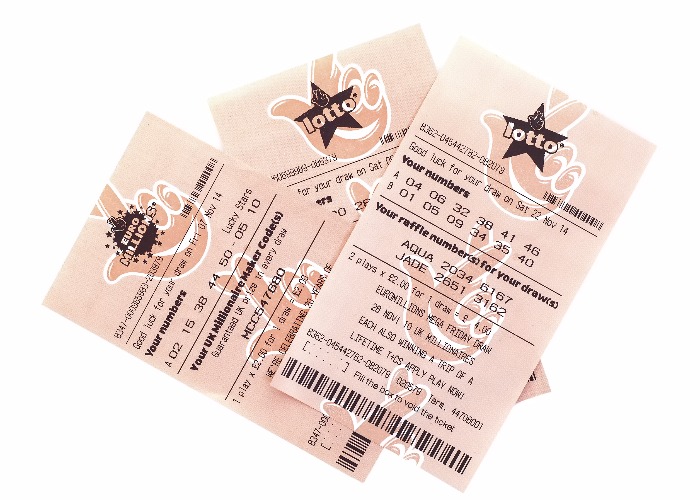Set for Life: ticket price, odds, winning numbers and more for new lottery game promising £10k a month for life

National Lottery's new prize offers £10,000 a month for 30 years to the pundit who guesses the winning numbers. However, there are considerable drawbacks, not least the odds.
This week saw the inaugural draw of Camelot’s newest 'Set for Life' National Lottery game, which will cost £1.50 a ticket.
Camelot describes it as an annuity-style prize, as rather than a single lump sum, winners will benefit from a payment each and every month for 30 years.
It’s not exactly a small amount either – bag the top prize and you’ll be collecting £10,000 a month, every month, for the next three decades. Plus it’s tax-free to boot.
Note that if the winner doesn't live in the UK, they will receive a £3.6 million jackpot prize rather than the monthly payout, as set out in the National Lottery's terms and conditions.
Odds and winning numbers
Players have to pick five main numbers, ranging from one to 47. Alongside that, they need to pick a ‘Life Ball’ which ranges from one to 10.
To take that top prize you’ll need to match all five of your main numbers, plus the ‘Life Ball’. The odds of that are a cool 15,339,390 to one.
If you only manage to get the five main numbers, and not the ‘Life Ball’, you’ll instead win £10,000 a month for a year: £120,000 in total.
After that prizes range from £5 for getting two of the main numbers, up to £250 for matching four main numbers and the ‘Life Ball’.
The second prize draw took place last night (25 March), and the winning numbers were: 02, 06, 09, 23, 30 and the Life Ball was 02.
20 lottery winners who blew the lot
A monthly prize versus a lump sum
Camelot pointed out that this form of prize, which like an annuity rewards winners with a regular, monthly payment, is popular in other countries.
It also suggested that it would likely be particularly attractive to younger people.
There is certainly something to be said about a monthly payment making managing that money a little easier.
If you get a large lump sum, whether through a lottery win, an inheritance or a life insurance payout, there will be some work to do to establish how to make it last for as long as possible.
You will inevitably need to invest it in some way, which brings with it all sorts of questions about how much risk you’re happy to take on, how easy it will be to access that cash as and when you need it, and the various fees that these investments will bring with them.
It’s difficult to avoid the fact that you will need to find a financial adviser to help you manage that cash.
Read our guide on How to protect a windfall.
Things are a little different if you are getting a monthly payment though.
Don’t get me wrong, £10,000 is an enormous sum, and if you’re sensible some of it will be invested.
But it’s a lot easier to manage £3.6 million when it’s broken up into monthly payments over such a long term, without the obvious risk of blowing the lot on expensive cars and wine.
It’s a similar model to that employed by life insurers with the Family Income Benefit (FIB), which serves as an alternative to traditional life insurance policies, as FIB pays out on a monthly basis.
What about inflation?
That said, if you do bag the top prize, you may find those monthly payments don’t go quite so far 10 or 20 years down the line as in the first few months after the win.
That’s thanks to inflation – chances are £10,000 won’t be worth as much in 2049 as it is today. And these payments aren’t inflation-linked, meaning they won’t go up as inflation does.
As a result, while budgeting should be easier, the actual value of your prize will fall over time because of this prize structure.
The best inflation-beating savings and current accounts
Never tell me the odds
I love a flutter as much as the next man, and the thought of bagging £3.6 million over the next three decades is lovely, but to be honest odds of more than 15 million to one aren’t exactly setting my heart racing.
Of course, there aren’t too many options when it comes to pocketing a life-changing sum of money overnight.
Personally, I think I’d be more tempted to move a portion of my savings over to Premium Bonds. Sure, they don’t pay any interest on the money you purchase in bonds, but you are entered into a monthly draw, with two £1 million top prizes.
The money is entirely protected in there too. You can read more about Premium Bonds in this guide.
For most of us looking to boost the state of our bank balance, taking a long-term approach is more viable. That may mean making the most of your ISA allowance, investing in the stock market, or even trying your hand at property investing.
Realistically, even if you are really successful in any – or even all – of these areas, it’s not likely that they will deliver a £10,000 monthly income, after tax.
But, equally, you stand a much better chance of building a decent investment portfolio, whether in stocks, shares, property or whatever than you do of winning the top prize in the Set for Life draw.
Read our full guide on investing, from shares to buy-to-let, commodities and more.
Comments
Be the first to comment
Do you want to comment on this article? You need to be signed in for this feature